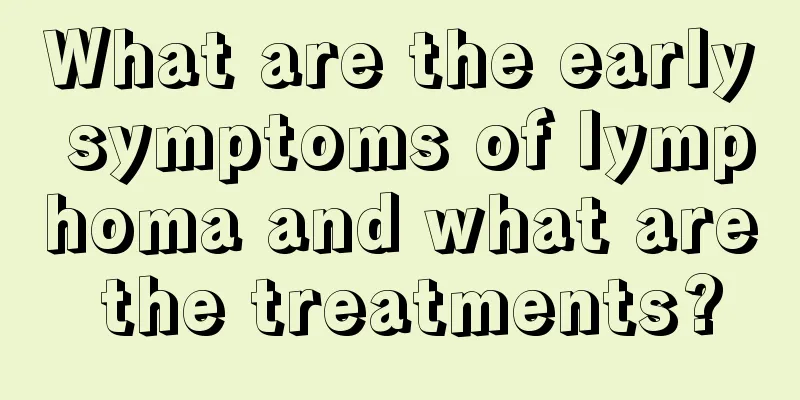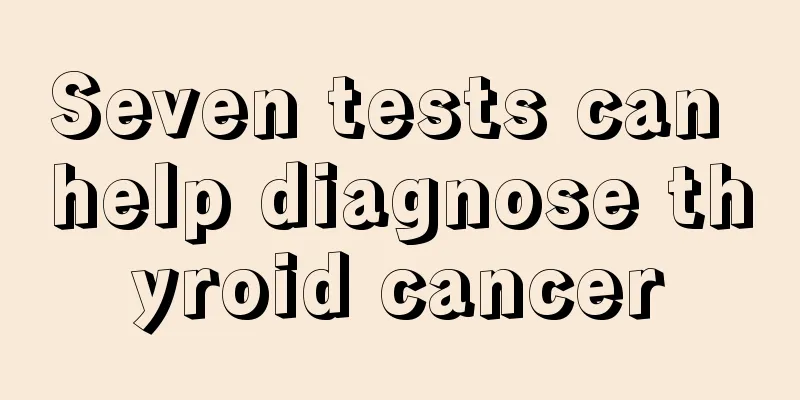What are the early symptoms of lymphoma and what are the treatments?

|
What are the early symptoms of lymphoma? What is the treatment method? Malignant lymphoma is a large and heterogeneous type of cancer. Although it is more likely to occur in lymph nodes, due to the distribution characteristics of the lymphatic system, lymphoma is a systemic disease that can invade almost any tissue and organ in the body. The clinical manifestations of malignant lymphoma have certain common characteristics, but also vary greatly according to different pathological types, sites of invasion and ranges. Malignant lymphoma may present systemic symptoms such as fever, itching, night sweats and weight loss before or at the same time as lymphadenopathy is discovered. 10% to 20% of patients may have anemia when diagnosed with malignant lymphoma. Some patients may have increased white blood cell count, thrombocytosis, and increased erythrocyte sedimentation rate. Some patients may have leukemoid reactions and a significant increase in neutrophils. The increase in lactate dehydrogenase is related to tumor load. Some patients, especially those in the advanced stage, show abnormal immune function. In B-cell NHL, varying amounts of monoclonal immunoglobulins can be detected in the serum of some patients. What is the treatment for early stage lymphoma? 1. Radiotherapy Some types of lymphoma can be treated with radiotherapy alone in the early stages. Radiotherapy can also be used for consolidation therapy after chemotherapy and adjuvant therapy during transplantation. 2. Chemotherapy for lymphoma chemotherapy is often combined with targeted therapy drugs and biological agents. In recent years, chemotherapy regimens for lymphoma have been greatly improved, and the long-term survival of many types of lymphoma has been greatly improved. 3. Bone marrow transplantation: For patients under 60 years old, medium- and high-risk patients who can tolerate high-dose chemotherapy, autologous hematopoietic stem cell transplantation can be considered. Some young patients with relapse or bone marrow invasion can also consider allogeneic hematopoietic stem cell transplantation. |
<<: What are the symptoms of stomach cancer during pregnancy
>>: What are the symptoms of stomach cancer
Recommend
What are the common diets and methods for gaining weight?
Some people are too thin, which is not good for h...
Take away snacks and specialties in Yinchuan
Many people have visited Yinchuan. When traveling...
Caffeine allergy
The clinical symptoms of caffeine allergy are mai...
What are the symptoms of high blood pressure? Do you have these symptoms?
The phenomenon of hypertension is now becoming mo...
Teach you how to prevent bladder cancer
The secret to preventing bladder cancer is very s...
How to do mycoplasma drug sensitivity test
Mycoplasma infection is a very common infection, ...
What is the reason for cracked heels
Too frequent dry and cracked heels, coupled with ...
What are the symptoms of kidney stones and hydronephrosis?
The occurrence of kidney stones and hydronephrosi...
What to do if your hands and feet are not coordinated when dancing
Some children are born with a good sense of rhyth...
How to reduce pancreatic cancer pain
The physical functions of patients with advanced ...
Choosing the treatment method for lung cancer is very important
It is very important to choose the early treatmen...
Can nectarines be eaten with cherries?
The fruit nectarine looks like it is coated with ...
What should I pay attention to during the treatment of lower leg fracture
Compared with the thigh bone, the calf bone is we...
What to do if eyelashes fall out severely
Eyelashes are the "barrier" that grows ...
Current status of research on osteosarcoma
I believe everyone is familiar with the harmfulne...









